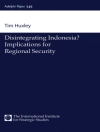Although merit system selection and management of public personnel is thought of as the standard for good governance, public employees frequently are appointed by political officials rather than being members of a career civil service. In fact, there has been an increase in the level of patronage appointments and politicization of public administration over the past several decades as political leaders attempt to impose their control over the public bureaucracy. Although widespread, patronage appointments in the public sector are particularly important in Latin America, where there is a tradition of extensive patronage. The Politics of Patronage Appointments in Latin American Central Administrations seeks to understand the motivations of patrons when they make appointments, the roles appointees play, the skills required to play these roles, and what accounts for different modalities of patronage. It moves beyond the conventional condemnation of patronage to examine the multiple uses of political appointments, which can be crucial for obtaining the services of highly qualified individuals who otherwise might not be willing to work in the public sector.
Mengenai Pengarang
Francisco Panizza (Editor) Francisco Panizza is professor in Latin American and comparative politics in the Department of Government of the London School of Economics and Political Science. He is the author, coauthor, and editor of eight books and more than thirty articles published in peer-reviewed journals.B. Guy Peters (Editor) B. Guy Peters is Maurice Falk Professor of Government at the University of Pittsburgh and founding president of the International Public Policy Association. He is the author of Administrative Traditions: Understanding the Roots of Contemporary Administrative Behavior and coeditor of Democratic Backsliding and Public Administration.Conrado Ramos Larraburu (Editor) Conrado Ramos Larraburu is professor in government and public administration in the Department of Political Science of the Faculty of Social Sciences, Universidad de la República. He has published extensively about public administration reforms in Latin America, with focus on civil service systems, models of public management, and the politics of patronage.












